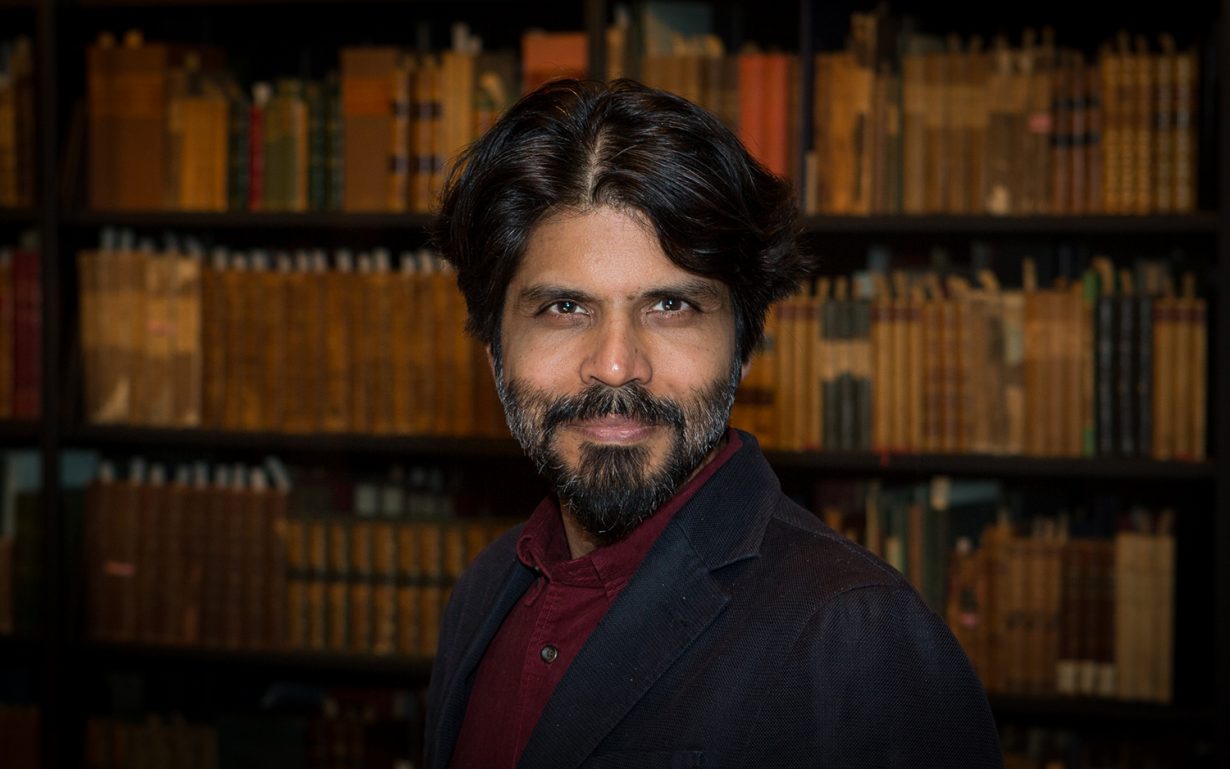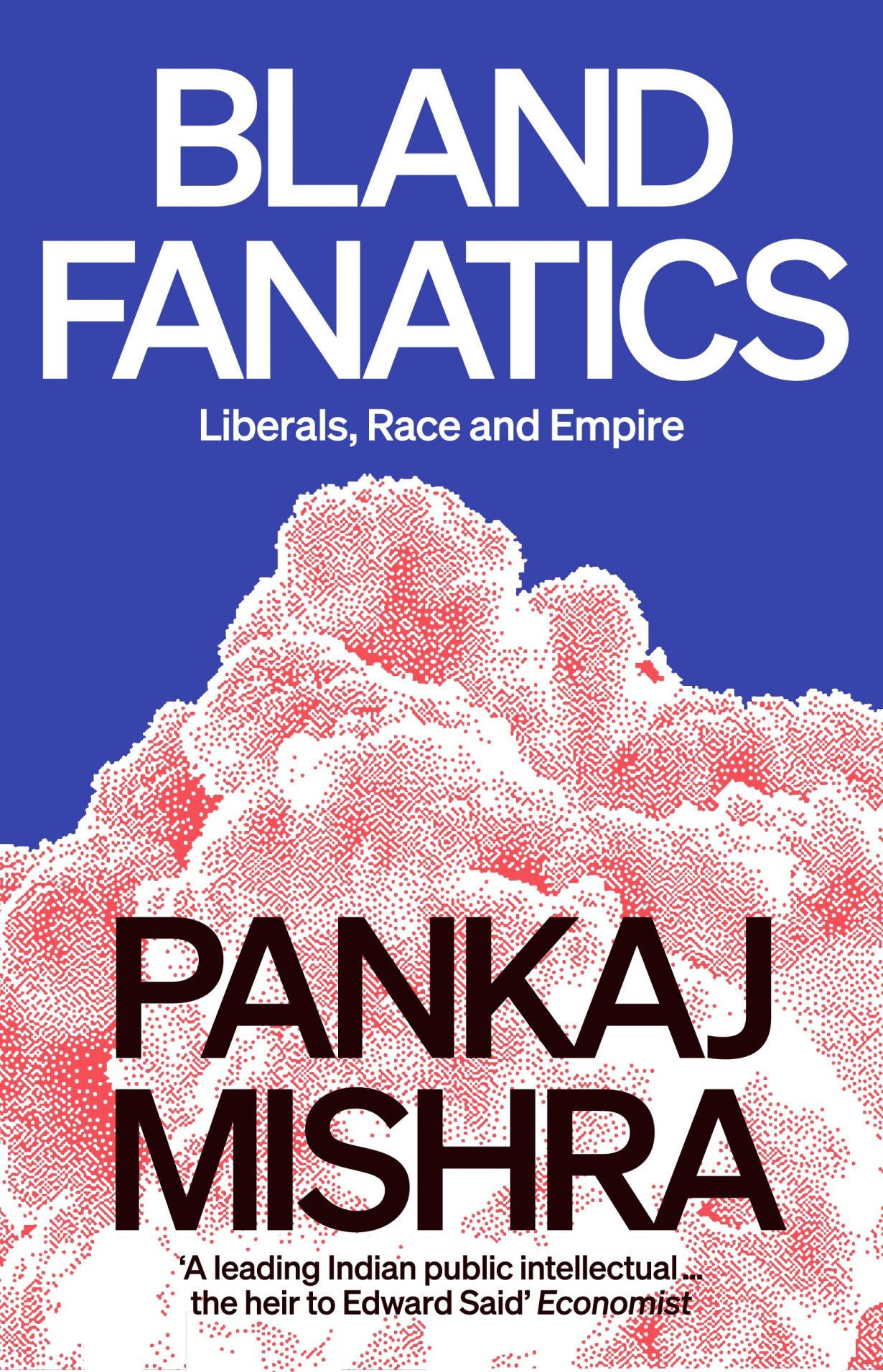A collection of essays considers the hustlers and ‘chumocrats’ that fill our public intellectual life, and the enduring language of imperialism
It may have seemed otherwise at the time, but the populist xenophobic and isolationist movements that climaxed in Brexit and the election of Donald Trump didn’t explode out of nowhere. They were always already there. So Pankaj Mishra argues in his collection of essays, Bland Fanatics, written over the past decade, that traces ‘Anglo-American delusions’ from the age of empire, via the Cold War, to neoliberalism and our embattled present. And argues that they are consistently the same.
In this, the fanatics are us (Anglo-Americans), not them (variously, Muslims, minorities and the nationals of formally colonised countries). ‘The British political class has offered to the world an astounding spectacle of mendacious, intellectually limited hustlers,’ he argues in a 2017 essay on Brexit titled ‘Bumbling Chumocrats’. Before getting stuck into the public intellectuals and media organs who, actively or passively, have allowed the chummy bumblers (and their American equivalents), armed with their baggy ideas and exceptionalist ideologies, to get to where they are now. Niall Ferguson, Salman Rushdie, Jordan Peterson, The Economist, Financial Times, The New York Times, The Wall Street Journal and The Atlantic are just a few of the targets of Mishra’s damning deconstructions of the perversions of the West. Among those are capitalism, ‘Anglobalisation’, white supremacy, institutionalised poverty and the problematics faced by ‘the very few writers from formerly colonised countries or historically disadvantaged minorities in the West who are embraced by “legacy” periodicals’.

Much of Mishra’s work, in both article and book form, has sought to trace the ways in which ideas affect realities. Bland Fanatics – its title borrowed from a term concocted by the American theologian and public intellectual Reinhold Niebuhr (an influence on Barack Obama, among many others) – is a continuation of this project, with an additional focus on the ways in which ideas can also be deployed to obscure reality. Mishra traces his awakening to this last to his native India, where the idea of constructing the world’s largest democracy was used to mask the deployment of martial law, state-sanctioned massacre and rape (the things from which India had apparently liberated itself in 1947), most evidently in Kashmir, which the author visited and reported from (for The Hindu) at the end of the last century. ‘India’s own bland fanatics, who seemed determined to nail their cherished “idea of India” into Kashmiri hearts and minds, prepared me for the spectacle of a liberal intelligentsia cheerleading the war for “human rights” in Iraq, with the kind of humanitarian rhetoric about freedom, democracy and progress that was originally heard from European imperialists in the nineteenth century,’ he writes in his introduction, as he prepares us for the autopsy that’s about to commence. Accordingly, though perhaps a little disappointingly, only one of the essays collected here directly tackles the country of his birth, a 2012 review of New Yorker staff writer Katherine Boo’s Behind the Beautiful Forevers, which tells the tale of a garbage trader in Mumbai.

The collection begins with Mishra’s infamous 2011 evisceration of historian Niall Ferguson and his book Civilisation: The West and the Rest (following which Ferguson threatened to sue for libel over allegations of racism). It remains a dazzling display of what close analysis and precise polemic can achieve. While also setting the stage for some of this collection’s persistent themes: how the language of imperialism remains the language that is deployed by both left and right today, and how Asian and other voices are erased from or suppressed within global political discourse as it is reported in liberal as well as illiberal discussion in the West. ‘Sane thinking’, he writes in relation to the first in a 2017 article titled ‘The Religion of Whiteness’, ‘would require, at the very least, an examination of the history – and stubborn persistence – of racist imperialism.’ By the time you get to that line, of course, you already know that this collection is beginning to do just that. In relation to the second of those themes, Mishra leaves a lengthy trail of breadcrumbs that includes, among others, the Indonesian intellectual Soedjatmoko, Indian-born novelist Kamala Markandaya, grand mufti of Egypt Muhammad Abduh, Indian reformist B. R. Ambedkar, Muslim activist Jamal al-Din al-Afghani and Chinese intellectual Liang Qichao (these last two the foundations of Mishra’s 2012 book From the Ruins of Empire). Indeed, the full list can seem so comprehensive that you wonder when Mishra has time to write.

Along the way, however, there’s a sense that Mishra’s carefully crafted pose of the Indian writer unmasking Anglo-American delusions about global power and national progress from the point of view of an outsider (perhaps even a victim) has, alongside his success (most recently with 2017’s The Age of Anger) and his considerable investment in the detail of these delusions, become somewhat difficult to maintain. This comes particularly to the fore in a 2018 review of Ta-Nehisi Coates’s 2017 essay collection We Were Eight Years in Power (although, as others have pointed out, Mishra doesn’t really review individual publications so much as their authors’ entire careers) titled ‘Why Do White People Like What I Write?’. In part, the text attempts to parse how liberal commentators could embrace the use of torture and bombing as part of various ‘wars on terror’, while simultaneously supporting Coates’s project to deconstruct and acknowledge ‘the historical legacy of institutionalised racial cruelty, inequality and division’ in the US. To embrace one sin (brutal imperialism), while recognising another (slavery), as if the two things were not ideologically and practically linked. While Mishra concedes that ‘amid this hectic laundering of reputations, and a turnover of “woke” white men, Coates has seized the opportunity to describe American power from the rare standpoint of its victims’, he also points out that the American writer is particularly vulnerable to the charge that he ‘is popular among white liberals since he assuages their guilt about racism’. And has a dig at Coates (a writer he evidently, if somewhat begrudgingly, admires) for describing The Atlantic (for which the essays included in We Were Eight Years in Power were originally written) as ‘prestigious’. In the wake of the murder of George Floyd and the subsequent Black Lives Matter protests in the US and the UK, Mishra’s essay on Niall Ferguson was redeployed in a newsletter sent out by London Review of Books. He also writes for, among other publications, The Guardian, Bloomberg and The New York Times. All of which leads one to think that at least some of what Mishra has to say about Coates might be the result of a degree of self-reflection on the dangers he faces himself.
And yet this collection does a whole lot more than simply kick against the pricks. It’s an extraordinarly powerful argument, by a writer of powerful and perhaps even remorseless conviction, for the case that we need first to rethink our past in order to reshape our future. And never more so than in times of present stress.
Pankaj Mishra, Bland Fanatics: Liberals, the West and the Afterlives of Empire (2020) is published by Verso.
